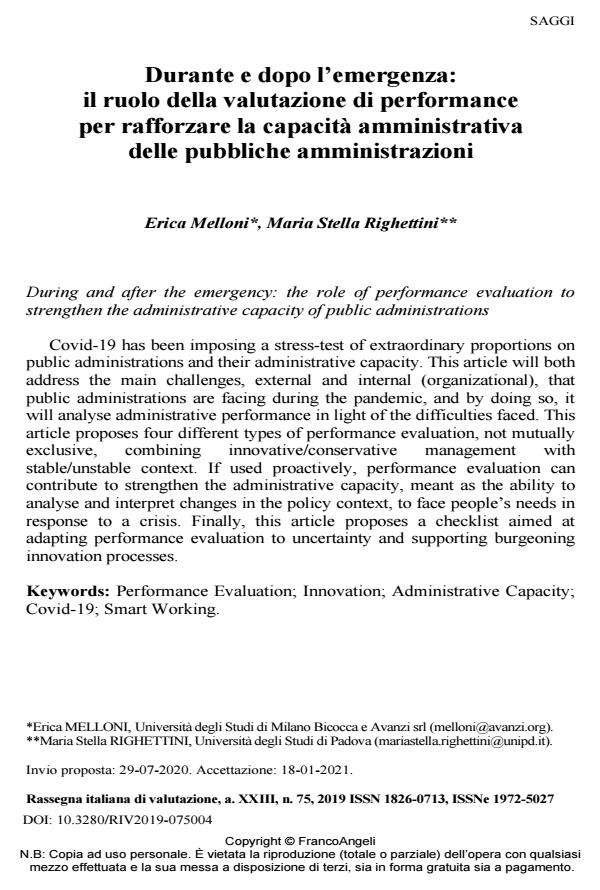During and after the emergency: the role of performance evaluation to strengthen the administrative capacity of public administrations
Journal title RIV Rassegna Italiana di Valutazione
Author/s Erica Melloni, Maria Stella Righettini
Publishing Year 2021 Issue 2019/75
Language Italian Pages 18 P. 42-59 File size 472 KB
DOI 10.3280/RIV2019-075004
DOI is like a bar code for intellectual property: to have more infomation
click here
Below, you can see the article first page
If you want to buy this article in PDF format, you can do it, following the instructions to buy download credits

FrancoAngeli is member of Publishers International Linking Association, Inc (PILA), a not-for-profit association which run the CrossRef service enabling links to and from online scholarly content.
Covid-19 has been imposing a stress-test of extraordinary proportions on public administrations and their administrative capacity. This article will both address the main challenges, external and internal (organizational), that public administrations are facing during the pandemic, and by doing so, it will analyse administrative performance in light of the difficulties faced. This article proposes four different types of performance evaluation, not mutually exclusive, combining innovative/conservative management with stable/unstable context. If used proactively, performance evaluation can contribute to strengthen the administrative capacity, meant as the ability to analyse and interpret changes in the policy context, to face people’s needs in response to a crisis. Finally, this article proposes a checklist aimed at adapting performance evaluation to uncertainty and supporting burgeoning innovation processes.
Keywords: Performance Evaluation; Innovation; Administrative Capacity; Covid-19; Smart Working.
Erica Melloni, Maria Stella Righettini, Durante e dopo l’emergenza: il ruolo della valutazione di performance per rafforzare la capacità amministrativa delle pubbliche amministrazioni in "RIV Rassegna Italiana di Valutazione" 75/2019, pp 42-59, DOI: 10.3280/RIV2019-075004